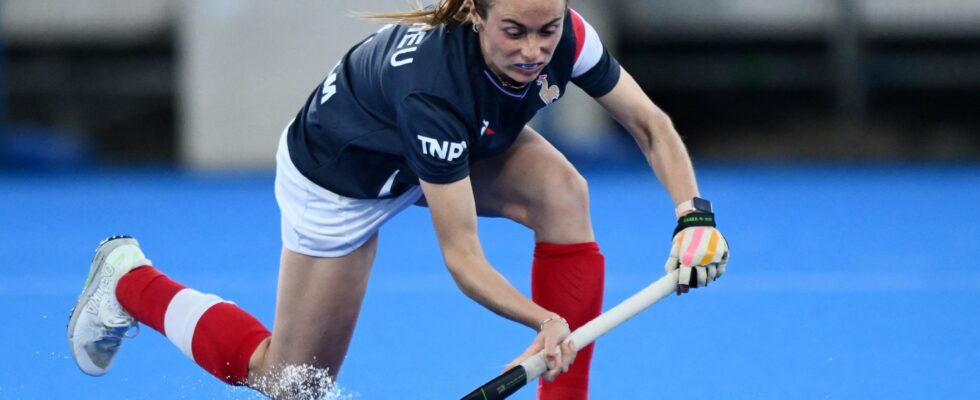On the pitch of the Olympic stadium in Munich, the Blues handled the stick until exhaustion. In September 1972, the French field hockey team faced Poland, after two victories and five defeats in the group stages of the Olympic Games organized in Germany. The score was tight, the overtime interminable… Until France finally lost to its opponent, finishing in 12th place. As they left the field, the players surely did not imagine that their team would take more than fifty years to participate in international competition again. After this last participation in Munich, the French hockey players would stumble for five decades on the many steps leading to Olympic qualification – failure sometimes being decided by a stroke of the stick. This Saturday, July 27, at the Yves-du-Manoir stadium in Colombes, the French team intends to put an end to this “curse” that is more than half a century old.
For fifty years, field hockey has suffered from a severe lack of funding and popularity in France. Among the most practiced sports in the world, according to the coach of the French men’s team Frédéric Soyez, it only has 12,000 licensed players in France, spread across 143 clubs, and as such benefits from little media coverage. “We are a small federation, with a small pool of players, little visibility… It’s a vicious circle,” explains Jean-Michel Dutrieux, vice-president of the French Hockey Federation (FFH). For comparison, there are 250,000 licensed players in Germany, 300,000 in the Netherlands, and more than half a million in the United Kingdom.
Established in France at the end of the 19th century, the practice, which came straight from England, was initially categorized as elitist, much less popular and accessible than football or rugby. “The first ‘smugglers’ were initially British expatriates in France, who gradually spread the sport via the Racing Club de France, or the Sporting Club Universitaire de France, which brought together the bourgeois and aristocratic elites of Paris”, recounts historian François Bourmaud, a specialist in the establishment of sports in France in the 19th century. Although field hockey was introduced to the London Olympics in 1908, at the initiative of the French, and a first International Hockey Federation was created in 1924 in Paris, the sport struggled to become democratized in the territory. “There was a rather fatal delay in getting started: other grass ball sports and tennis were about ten years ahead and monopolized attention,” explains François Bourmaud.
Underfunding
Driven by a strong presence in the north of France, where the three biggest French clubs are now located, and in the Paris region, field hockey nevertheless experienced a phase of development in the 1960s. “At the time, we were still playing on natural grass, and we were quite well placed in the world rankings,” remembers Patrick Burtschell, a player on the French team from 1964. At the Mexico Olympics in 1968, the team finished 10th, then 12th at the Munich Olympics in 1972. “Then it became complicated: we were facing nations like India, who were very competent and highly trained. The pitches were switched to synthetic, the equipment and the way of playing completely changed, all the infrastructure had to be replaced… We fell way behind at that point,” analyses the former player. At the FFH, vice-president Jean-Michel Dutrieux agrees. “It was sometimes complicated to obtain land: it was a specific investment, it depended on the size of the clubs, their budget… This contributed to the somewhat exclusive nature of the sport,” he admits.
In fact, economic investment in field hockey has long remained low. “A hockey player, who trains as much as any professional basketball or handball player, does not have the salary that goes with it,” regrets Frédéric Soyez, the boys’ coach. To reverse the trend, FFH president Isabelle Jouin is working hard: in office since 2021, she admits that she started from a “difficult” financial context. “We were close to ceasing payments, with a debt of 630,000 euros of negative equity on a budget of 2.7 million euros,” she explains. Since then, an audit has been requested from the Ministry of Sports, and an auditor has taken the position of treasurer.
At the same time, the Federation is trying to break down barriers to the practice, for example by promoting the creation of mobile pitches and feminizing clubs: the number of female members jumped by 29.5% last year, according to Isabelle Jouin. To definitively popularize the “cursed sport” of the Olympic Games, the FFH is also banking on the media impact of the competition. “Today, it’s the image that counts. Hockey is dynamic, spectacular, easy to read: we have to make potential players want to play from a very young age!” insists Jean-Michel Dutrieux, impatient to reap the benefits of the “Olympic effect”.
.
